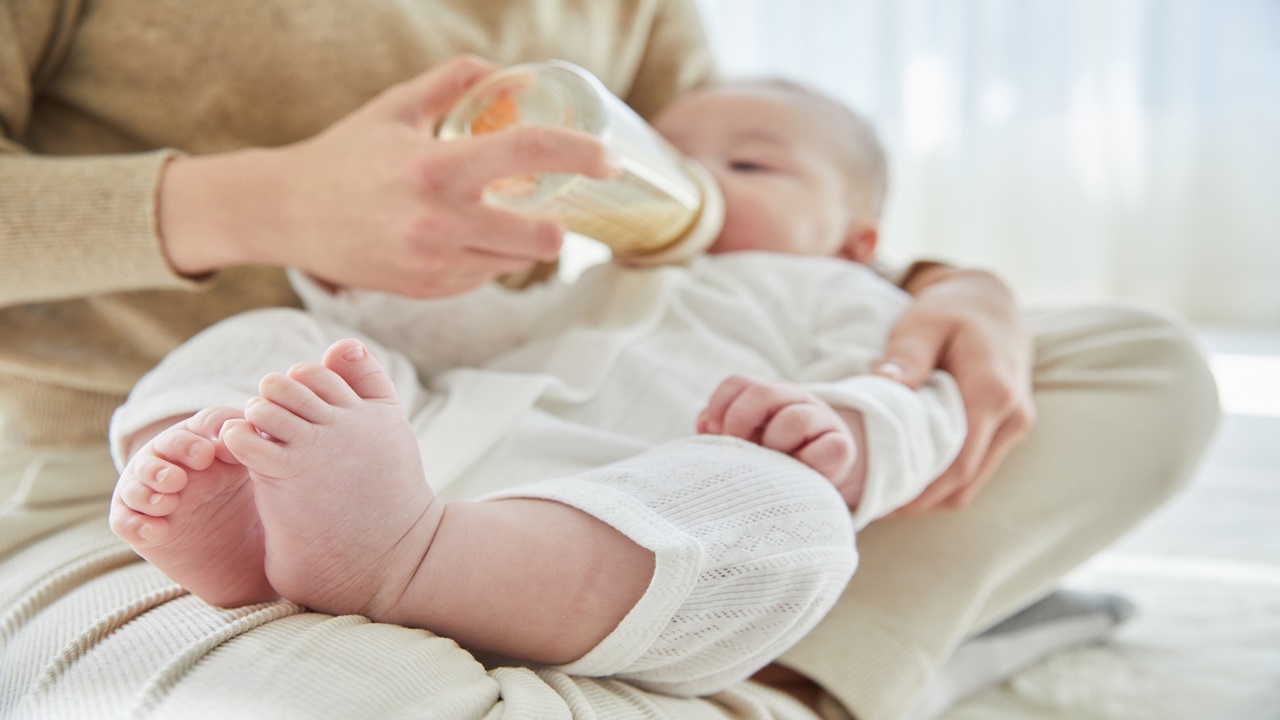
According to the scientific journal Nature, infectious disease experts at the University Hospital of Helsinki, Finland, presented the results of a study on the so-called 'fecal milkshake' at the American Infectious Diseases Association (IDSA) meeting held in California, USA on the 18th (local time).
'Fecal milkshake' means milk made by mixing mother's feces.
Dr. Otto Helve, director of public health at the Finnish Institute for Health and Welfare, conducted an experiment on 90 women scheduled to have a cesarean section at Helsinki University Hospital. Among them, 54 people with harmful pathogens in feces were excluded from the experiment, and only women who did not have harmful pathogens in feces were selected as the test group.
The research team mixed 3.5 mg of feces of a woman who gave birth to a baby by cesarean section into milk and provided the baby at the first feeding. Fifteen babies were given a "fecal milkshake" and 16 others were given a placebo (a fake drug that induces psychological effects).
As a result, the research team claimed to have captured significant results in the process of analyzing the baby's feces. There is a significant difference in intestinal microbial diversity between the two subjects.
The research team said, "As a result of analyzing the fecal samples of babies, the microbial diversity of the two groups was similar when they were just born, but after a certain period of time, a large difference was observed between babies who ate a small amount of feces and those who did not."
"This difference lasted until six months of age, when babies began to eat baby food," he said. Currently, the experiment continues, and the research team will check and analyze the babies' health for a total of two years.
"Babies born with cesarean section are known to have a higher risk of asthma, digestive system inflammation, and immune system-related diseases than babies born with cesarean section," the research team said. "We also noted that babies born with cesarean section have different intestinal bacterial distributions compared to babies born with natural birth because they are not exposed to the quality of their mothers and intestinal microorganisms."
However, some pointed out that the study did not directly compare with natural delivery babies, raising questions about whether feeding cesarean babies "fecal milkshakes" can form a similar amount of intestinal microorganisms to actual natural delivery babies.
Reporter Park Sun-young of Digital News Team
[Copyright holder (c) YTN Unauthorized reproduction, redistribution and use of AI data prohibited]
International
More- "Russia attempts to integrate its forces instead of the North Korean military's independent units"
- "I hate you guys"...Hollywood star 'happy and sad' at Trump's presidential election win
- [News UP] "Make America Great Again"...What's the mood for Trump's return to power?
- Obama "Not the result I hope, but democracy is a peaceful transfer of power"
![[News UP] Trump's administration, uncertain market...The aftermath of the surge in exchange rates and coins](https://image.ytn.co.kr/general/jpg/2024/1107/202411070918152519_h.jpg)
![[Weather] "Ipdong" during the season, freezing cold everywhere...Seoul's First Ice Observation](https://image.ytn.co.kr/general/jpg/2024/1107/202411070838528142_h.jpg)
![[Scene video+] Trump is back... "There will be a big change in the Korean economy."](https://image.ytn.co.kr/general/jpg/2024/1107/202411070833177256_h.jpg)
!["The scariest scenario"...Is Trump Trying To Directly Deal With Kim Jong Un? [Y Record]](https://image.ytn.co.kr/general/jpg/2024/1107/202411070818548013_h.jpg)
![[Exclusive] Ji Seung-hyun, Jung Hye-sung, romance...Starring in the movie 'My Friend Is a Killer'](https://image.ytn.co.kr/general/jpg/2024/1107/202411070912582873_h.jpg)




